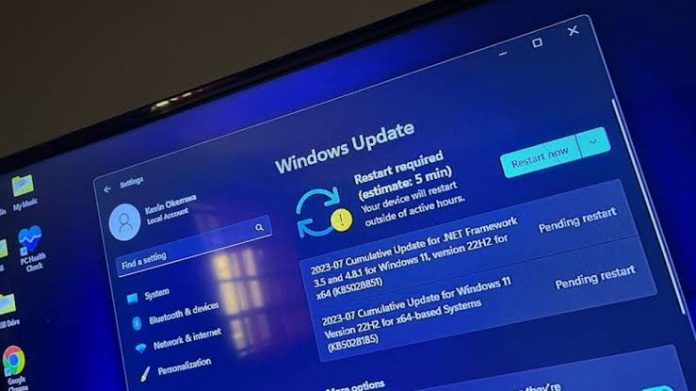Microsoft has announced a groundbreaking shift in digital security with its latest Windows 11 update, aiming to eliminate traditional passwords in favor of advanced authentication technologies. The move underscores the company’s commitment to improving cybersecurity by addressing one of the weakest links in online safety: human error associated with passwords.
This initiative is expected to redefine how users interact with technology while setting a new standard for security in the digital age.
Why Passwords Are Becoming Obsolete
Passwords have long been the primary method for accessing digital accounts, but their vulnerabilities have been a consistent problem. Weak passwords, reused across multiple accounts, are a leading cause of data breaches. According to Verizon’s 2023 Data Breach Investigations Report, over 80% of hacking-related breaches involve stolen or weak credentials.
Microsoft’s shift toward passwordless authentication aims to tackle these issues head-on. The company plans to rely on technologies such as Windows Hello, FIDO2 security keys, and Microsoft Authenticator, offering users more secure and convenient access methods.
How Passwordless Authentication Works
Passwordless systems use biometric identifiers, hardware tokens, or device-based authentication to grant access. For instance:
— Windows Hello allows users to sign in using facial recognition or fingerprint scanning.
— FIDO2 Security Keys are physical devices that serve as a unique identifier for users.
— Microsoft Authenticator generates time-based codes for secure logins without requiring a password.
These methods are not only more secure but also significantly reduce the time and frustration associated with password management.
The Broader Impact on Cybersecurity
By eliminating passwords, Microsoft aims to reduce phishing attacks, credential theft, and brute-force hacking attempts. The adoption of passwordless systems could also have a cascading effect on the tech industry, encouraging other companies to follow suit.
Satya Nadella, Microsoft’s CEO, has called this transition a “game-changer,” emphasizing that cybersecurity is no longer just a technical issue but a fundamental trust issue between technology providers and users.

Challenges and Criticism
While the passwordless future promises significant benefits, it is not without challenges. Critics argue that the reliance on biometric data raises privacy concerns. Additionally, there are questions about how users can recover accounts if their primary authentication method fails, such as losing a device or experiencing a hardware malfunction.
Microsoft has addressed these concerns by developing robust fallback systems, including backup recovery codes and secondary authentication options.
Global Implications
This move could have a profound impact globally, especially in countries where digital infrastructure is rapidly expanding. As more businesses and individuals come online, the need for secure yet accessible authentication methods becomes increasingly critical. Passwordless systems could offer a scalable solution for both developed and emerging markets.
Looking Ahead
The transition to passwordless systems is part of a broader trend in cybersecurity, with other tech giants like Google and Apple also exploring similar technologies. Microsoft’s initiative may pave the way for a future where passwords are considered a relic of the past.
As the digital landscape evolves, this development represents a significant step toward a more secure and user-friendly online experience.



